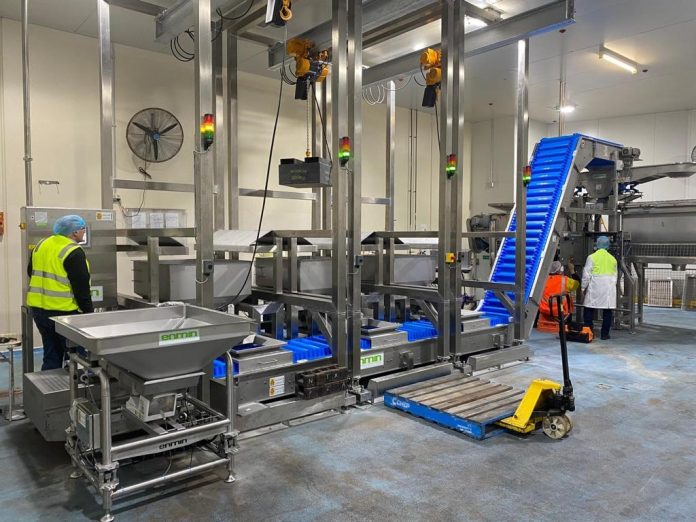
Media Release By Enmin
For over 40 years, Enmin has been designing and building an extensive range of vibratory equipment and materials handling solutions for a myriad of applications and environments. The company’s vast knowledge and expertise in this area has seen their list of customers grow to include most of Australia’s leading food industry manufacturers.
Since its inception, Enmin has taken a no compromise approach to safety and its extensive experience of the materials handling industry has seen it develop products that have safety at its core.
All the equipment that Enmin manufactures at its factory in Braeside is designed with a clear focus on operator and electrical safety and ergonomic design to maximise operator efficiency and minimise fatigue.
“There are a number of Australian industry safety standards that need to be met. In addition to that, all our customers have additional requirements to suit their particular operating environment – different sites have different needs. Our aim is to accommodate all possible standards,” said Enmin General Manager, Anthony Gallaher.
“Because we are a local manufacturer we can offer a Factory Acceptance Test (FAT) where a customer can come and inspect the equipment and make any minor changes before being shipped; this includes supplying our own risk assessment certificate for further peace of mind. As a result, this ensures that when customers’ run their own SAT (Site Acceptance Test) we find minimal or no rectification work is required to get it ‘system ready,’” he added.
“Certain countries will be designing and building equipment with only price in mind. Very often this does not meet even the most basic safety standards. Couple that with little on the ground support and it will ultimately cause a lot of problems which often delays the installation of the equipment leading to unproductive hold-ups and additional costs,” Mr Gallaher continued.
Enmin’s Hopper Feeder and Mi-CON elevating conveyor are two of the company’s most popular products and are perfect examples of the company’s safety-first focus.
“Very often companies may think that imported equipment meets the Australian standards, but that is often not the case. Also, whilst it may be fit for a company’s needs today it may not be right for the long term as their business evolves,” Mr Gallaher went on to say.
“Whilst lower cost equipment from overseas may initially seem an attractive proposition it is ultimately false economy. The rectification costs and time involved to ensure the unit meets Australian safety standards is significant. And if a company does decide to cut corners on operator safety they are literally walking a tightrope –
things can go horribly wrong. Getting the right safety up front is a small price to pay for security and safety long term,” Mr Gallaher said.
“Many other benefits accrue when buying locally made equipment: prompt delivery turnaround, the ability to work closely with us during every phase of the project and the opportunity to easily add to or modify equipment years later as production needs change.
And of course, being a local manufacturer means we are only a quick phone call away to immediately respond to any customer technical query or provide service and parts support throughout Australia,” he summed up.
“The reassurance that comes with having safety built in and the knowledge that the equipment is fit for purpose from the start far outweighs any price difference. In terms of peace of mind, time savings and return on investment, there is simply no comparison,” Mr Gallaher concluded.
Image Supplied: enmin.com.au













